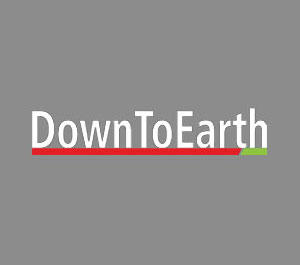Bhopal: Way Ahead
DURING1969-84, Union Carbide India Limited (UCIL) mainly produced three pesticides namely sevin(carbaryl), temik (aldicarb) and sevidol, which is a formulation of carbaryl and gammahexachlorocyclohexane (γ-HCH).
All these years, the toxic wastes and products were being dumped at certain area inside the plant and outside in the solar evaporation pond (SEP). The UCIL plant was shut down after the gas leakage disaster in 1984 and the highly toxic waste dumped has been lying in the plant premises and SEP ever since. Over the years, this waste has been a continuous source of soil and groundwater contamination and therefore a cause of serious public health concern for residents in the surrounding areas.
There have been several studies to assess the level of contamination and outline the fate of the UCIL site. Governments at the state and center along with judiciary at the highest level are involved to address this issue of contamination and remediation. However, the situation at the ground has not changed to the satisfaction of the local people and the scientific community at large.
|
Summary of Action Plan (pdf)
|
Centre for Science and Environment (CSE) analysed about 15 studies conducted over the last twenty years to assess soil and groundwater contamination in and around the UCIL site. These studies were conducted by several non-government organisations, Madhya Pradesh state agencies, Central Pollution Control Board (CPCB), Council of Scientific & Industrial Research (CSIR) institutes such as National Environmental Engineering Research Institute (NEERI), National Geophysical Research Institute (NGRI), Indian Institute of Chemical Technology (IICT) and Indian Institute of Toxicology Research (IITR). Most of these studies confirm contamination and have more convergence than divergence. The nature of contaminants found in the soil and the place from where they were found are similar in several studies. Contamination of groundwater has also been reported in most studies. Characterisation of toxic waste lying at the UCIL site and dumped at SEP is done by few. CSE after analysing these previously conducted studies together with recent developments and success (or lack of it) in disposal and remediation, realised the need for a discussion to develop a consensus on the future course of action among all stakeholders, such as those who have studied and suggested remediation measures, those who would regulate, monitor and execute the suggested plans, scientific community and affected local community from Bhopal. A two-day roundtable meeting was organised on April 25-26 at New Delhi that focused on developing a road map on remediation of soil and groundwater contamination, disposal of toxic chemical waste, remediation of plant machinery and the fate of the site. For the first time, such a discussion was held, wherein active participation was observed among experts from concerned CSIR institutes such as NEERI, IICT, IITR that have comprehensively studied and reported on this in the past, CPCB – which is actively involved at present, several IITs, hazardous waste management companies, and affected community from Bhopal.
The expert group extensively deliberated on several aspects including the current state of contamination, immediate and long-term measures to prevent further spread of contamination, gaps in previous studies and suitability of various remediation technology options. Collective understanding in the group reflected agreement on the presence of contamination in soil, need of further studies to assess the nature and extent of groundwater contamination, lack of understanding on the waste that is dumped at SEP, high possibility of more waste dumps within the site thereby much higher amount of toxic waste than the currently discussed 350 tonnes, preservation of the site as a memorial and the need for breaking the institutional logjam that has held up the remediation and clean-up operations. Towards the end of deliberations, the expert group collectively developed an action plan on way ahead such as on how the toxic waste should be disposed, what needs to be done with the contaminated soil and groundwater, how to prevent further contamination and what should be the fate of the UCIL site. We at CSE hope that this report helps in better understanding of the situation and is successful in initiating a swift and concrete action to address this important issue of public health for the people of Bhopal.
Reports
January 05, 2013
Analysis of Soil and Groundwater Samples in Bhopal, IITR, 2013
August 28, 2009
CPCB findings on contamination at Bhopal site Jan 2010
November 05, 1999
The Bhopal Legacy, Greenpeace International, 1999
Press Releases
Initiatives
Story
Cse Laboratory Report
Overview
Judgements
Fact Sheets
Letters
Others
Down to Earth

August 24, 2017
.jpg)
August 24, 2017

August 24, 2017
.jpg)
August 24, 2017

August 24, 2017

August 24, 2017

August 24, 2017

August 24, 2017

August 24, 2017

August 24, 2017

August 24, 2017

September 18, 2017















Share this article